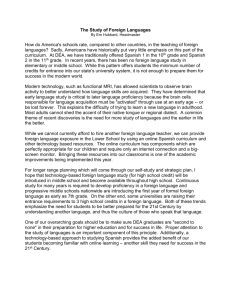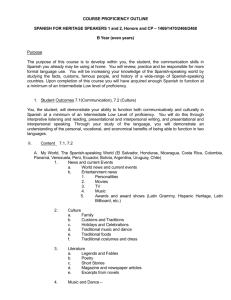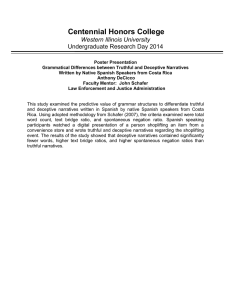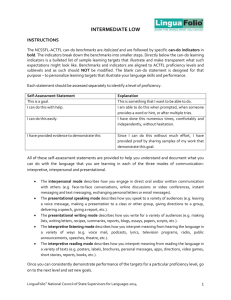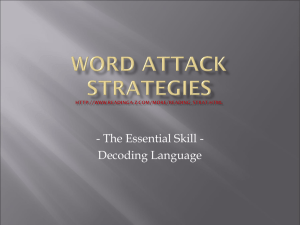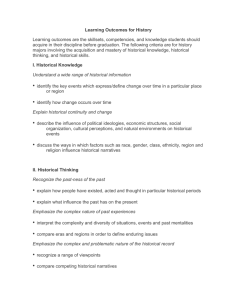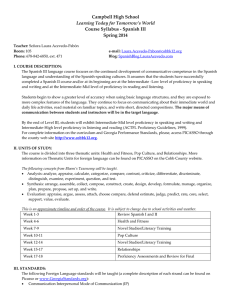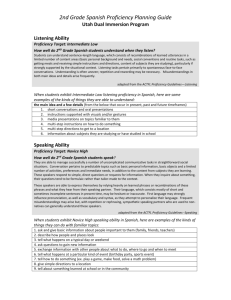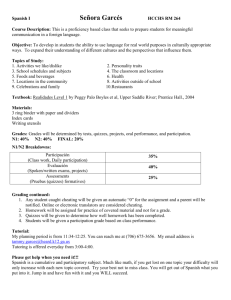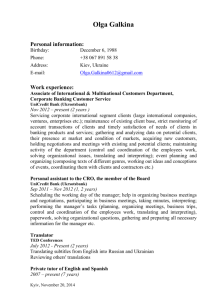Spanish 2030
advertisement
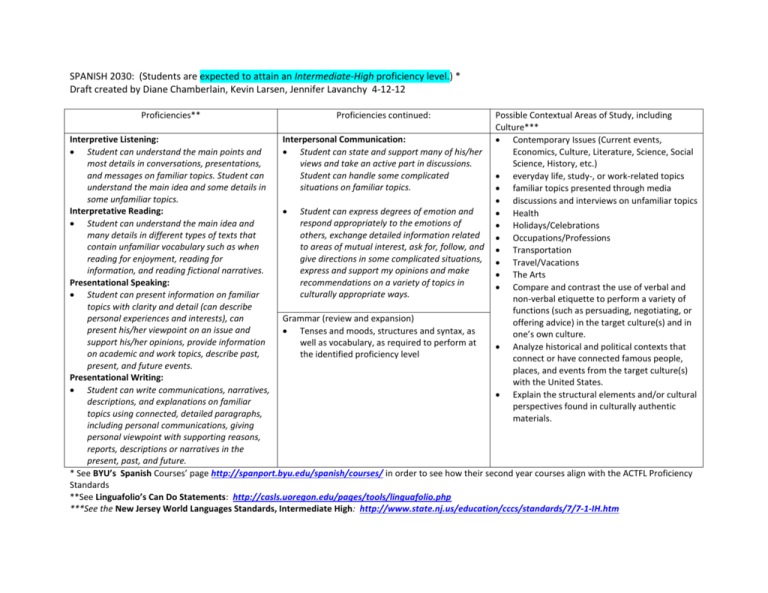
SPANISH 2030: (Students are expected to attain an Intermediate-High proficiency level.) * Draft created by Diane Chamberlain, Kevin Larsen, Jennifer Lavanchy 4-12-12 Proficiencies** Proficiencies continued: Possible Contextual Areas of Study, including Culture*** Contemporary Issues (Current events, Economics, Culture, Literature, Science, Social Science, History, etc.) everyday life, study-, or work-related topics familiar topics presented through media discussions and interviews on unfamiliar topics Health Holidays/Celebrations Occupations/Professions Transportation Travel/Vacations The Arts Compare and contrast the use of verbal and non-verbal etiquette to perform a variety of functions (such as persuading, negotiating, or offering advice) in the target culture(s) and in one’s own culture. Analyze historical and political contexts that connect or have connected famous people, places, and events from the target culture(s) with the United States. Explain the structural elements and/or cultural perspectives found in culturally authentic materials. Interpretive Listening: Interpersonal Communication: Student can understand the main points and Student can state and support many of his/her most details in conversations, presentations, views and take an active part in discussions. and messages on familiar topics. Student can Student can handle some complicated understand the main idea and some details in situations on familiar topics. some unfamiliar topics. Interpretative Reading: Student can express degrees of emotion and respond appropriately to the emotions of Student can understand the main idea and many details in different types of texts that others, exchange detailed information related contain unfamiliar vocabulary such as when to areas of mutual interest, ask for, follow, and reading for enjoyment, reading for give directions in some complicated situations, information, and reading fictional narratives. express and support my opinions and make Presentational Speaking: recommendations on a variety of topics in culturally appropriate ways. Student can present information on familiar topics with clarity and detail (can describe Grammar (review and expansion) personal experiences and interests), can present his/her viewpoint on an issue and Tenses and moods, structures and syntax, as support his/her opinions, provide information well as vocabulary, as required to perform at on academic and work topics, describe past, the identified proficiency level present, and future events. Presentational Writing: Student can write communications, narratives, descriptions, and explanations on familiar topics using connected, detailed paragraphs, including personal communications, giving personal viewpoint with supporting reasons, reports, descriptions or narratives in the present, past, and future. * See BYU’s Spanish Courses’ page http://spanport.byu.edu/spanish/courses/ in order to see how their second year courses align with the ACTFL Proficiency Standards **See Linguafolio’s Can Do Statements: http://casls.uoregon.edu/pages/tools/linguafolio.php ***See the New Jersey World Languages Standards, Intermediate High: http://www.state.nj.us/education/cccs/standards/7/7-1-IH.htm
